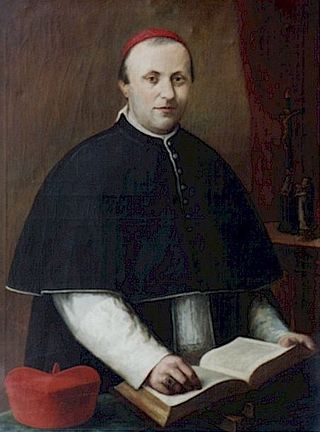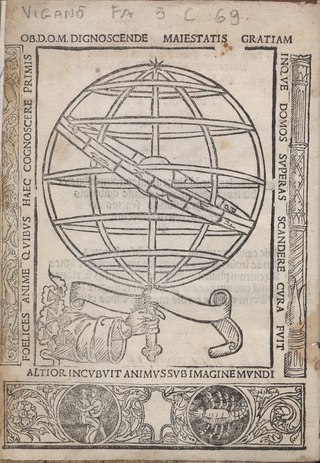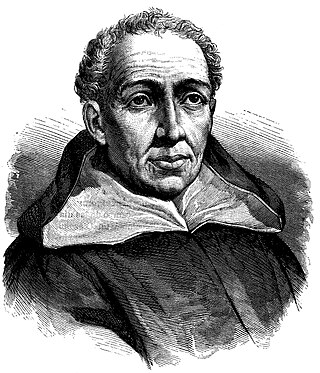
Tommaso Maria Zigliara, OP was a Corsican priest of the Catholic Church, a member of the Dominicans, a theologian, philosopher and a cardinal.

The Pontifical University of Saint Thomas Aquinas (PUST), also known as the Angelicum in honor of its patron the Doctor Angelicus Thomas Aquinas, is a pontifical university located in the historic center of Rome, Italy. The Angelicum is administered by the Dominican Order and is the order's central locus of Thomist theology and philosophy.

John Capreolus, in French Jean Capréolus and in Latin Johannes Capreolus, was a French Dominican theologian and Thomist.

Sylvester Mazzolini, in Italian Silvestro Mazzolini da Prierio, in Latin Sylvester Prierias (1456/1457–1527), was a theologian born at Priero, Piedmont; he died at Rome. Prierias perished when the imperial troops forced their way into the city, leading to the Sack of Rome.
Summa and its diminutive summula was a medieval didactics literary genre written in Latin, born during the 12th century, and popularized in 13th century Europe. In its simplest sense, they might be considered texts that 'sum up' knowledge in a field, such as the compendiums of theology, philosophy and canon law. Their function during the Middle Ages was largely as manuals or handbooks of necessary knowledge used by individuals who would not advance their studies any further.

The Basilica of San Domenico is one of the major churches in Bologna, Italy. The remains of Saint Dominic, founder of the Order of Preachers (Dominicans), are buried inside the exquisite shrine Arca di San Domenico, made by Nicola Pisano and his workshop, Arnolfo di Cambio and with later additions by Niccolò dell'Arca and the young Michelangelo.
James Arthur was a Dominican friar and theologian. He was born in Limerick, Ireland, early in the 17th century and died most likely in 1670.

Reginald of Piperno was an Italian Dominican, theologian and companion of Thomas Aquinas.

John of St. Thomas, born João Poinsot, was a Portuguese Dominican friar, Thomist theologian, and professor of philosophy. He is known for being an early theorist in the field of semiotics.
Francesco Silvestri was an Italian Dominican theologian. He wrote a notable commentary on Thomas of Aquinas's Summa contra gentiles, and served as Master General of his order from 1525 until his death.

Tomás de Lemos (Thomas) was a Spanish Dominican theologian and controversialist.
Bartolomeo Spina was an Italian Dominican theologian and scholastic philosopher.
Giovanni Maria Cornoldi was an Italian Jesuit academic, author, and preacher.
Lancelotto Politi was an Italian Dominican canon lawyer, theologian and bishop.
Catholic dogmatic theology can be defined as "a special branch of theology, the object of which is to present a scientific and connected view of the accepted doctrines of the Christian faith."
Jean Nicolaï was a French Dominican theologian and controversialist.

Thomas Aquinas was an Italian Dominican friar and priest, the foremost Scholastic thinker, as well one of the most influential philosophers and theologians in the Western tradition. He was from the county of Aquino in the Kingdom of Sicily.
Angelo Pirotta, O.P. was a Maltese philosopher and educator. In philosophy, his areas of specialization were epistemology and metaphysics.
Sisto Fabri was a theologian and canon lawyer of the Dominican Order who was appointed Master of the Sacred Palace by Pope Gregory XIII serving from 1580 to 1583, and Master of the Order of Preachers from 1583 to 1589.








